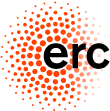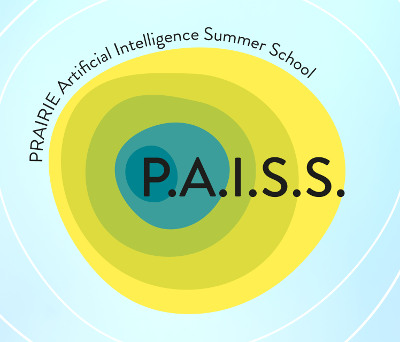SOLARIS Project
 |
Solaris is an ERC starting grant project, which started in March 2017 and ended in February 2022. |
Project Description
Machine learning has become a key part of scientific fields that produce a massive amount of data and that are in dire need of scalable tools to automatically make sense of it. Unfortunately, classical statistical modeling has often become impractical due to recent shifts in the amount of data to process, and in the high complexity and large size of models that are able to take advantage of massive data. The promise of SOLARIS is to invent a new generation of machine learning models that fulfill the current needs of large-scale data analysis: high scalability, ability to deal with huge-dimensional models, fast learning, easiness of use, and adaptivity to various data structures. To achieve the expected breakthroughs, our angle of attack consists of novel optimization techniques for solving large-scale problems and a new learning paradigm called deep kernel machine. This paradigm marries two schools of thought that have been considered so far to have little overlap: kernel methods and deep learning. The former is associated with a well-understood theory and methodology but lacks scalability, whereas the latter has obtained significant success on large-scale prediction problems, notably in computer vision. Deep kernel machines will lead to theoretical and practical breakthroughs in machine learning and related fields. For instance, convolutional neural networks were invented more than two decades ago and are today's state of the art for image classification. Yet, theoretical foundations and principled methodology for these deep networks are nowhere to be found. The project will address such fundamental issues, and its results are expected to make deep networks simpler to design, easier to use, and faster to train. It will also leverage the ability of kernels to model invariance and work with a large class of structured data such as graphs and sequences, leading to a broad scope of applications with potentially groundbreaking advances in diverse scientific fields.
Members
Principal Investigator
Julien Mairal
Research engineers
2021 – 2022 Gedeon Muhawenayo
2020 – 2021 Theo Bodrito
2019 Alexandre Zouaoui
2019 Bruno Lecouat
2019 Xavier Martin
2017 – 2019 Ghislain Durif, now research engineer at CNRS, Montpellier
Post-docs (who are either funded by, or have participated to the project)
2021 – 2022 Michael Arbel
2020 – 2022 Margot Selosse
PhD students (who are either funded by, or have participated to the project)
2021 – present Gaspard Beugnot (with A. Rudi)
2020 – present Alexandre Zouaoui
2019 – present Bruno Lecouat (with J. Ponce)
2018 – present Gregoire Mialon (with A. d'Aspremont)
2017 – 2020 Andrei Kulunchakov (with A. Juditsky)
2017 – 2020 Dexiong Chen (with L. Jacob)
2016 – 2019 Alberto Bietti.
2016 – 2019 Mikita Dvornik (with C. Schmid)
2015 – 2019 Daan Wynen (with C. Schmid)
2015 – 2018 Arthur Mensch (with G. Varoquaux and B. Thirion), now post-doc at ENS Ulm.
2014 – 2017 Thomas Dias-Alves (with M. Blum), now data scientist at HP.
2014 – 2017 Hongzhou Lin (with Z. Harchaoui), now post-doc at MIT.
2014 – 2017 Mattis Paulin, now engineer at DGA.
Master students
2018 Gregoire Mialon
2017 Andrei Kulunchakov (with A. Juditsky and Z. Harchaoui)
2017 Dexiong Chen (with L. Jacob)
Events
 |
2021: We organize PAISS, the PRAIRIE AI summer school from July 5 to July 9th, 2021. {}{imgleft}{..resourceslogopaiss.jpg}{paiss logo}{60px}{50px}{} 2019: We organized PAISS, the PRAIRIE AI summer school from October 3rd to October 5th. The 2020 event is unfortunately cancelled due to the COVID-19 situation. |
2019: We organized OSL 2019, Optimization and Statistical Learning workshop.
 |
2018: Along with Naver labs Europe, we organized PAISS, the PRAIRIE AI summer school from July 2nd to July 6th. |
Contact
Inria
655, avenue de l'Europe
38330 Montbonnot Saint Martin
France
Prospective students or post-docs may contact me at
email: julien.mairal AT inria.fr